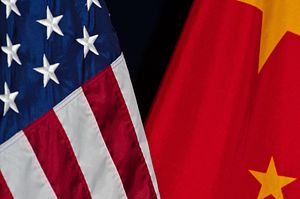The U.S. Army War College’s Strategic Studies Institute recently published Avoiding the Trap: U.S. Strategy and Policy for Competing in the Asia-Pacific Beyond the Rebalance, a lengthy collection of articles by U.S. Army and Marine colonels, a U.S. Navy commander, Foreign Service members, and war college professors about suggestions for avoiding the Thucydides Trap. The Thucydides Trap, a term coined by Harvard’s Graham Allison, is the notion that when a rising power challenges the established leader of the international order conflict often ensues.
The editors of the volume agree that U.S. President Barack Obama’s “rebalance” or “pivot” to the Asia-Pacific was good policy, but they also point out its shortcomings in application. They criticize the Obama administration for the lack of a coherent strategy to deal with the inevitable rise of China in the region. They are hopeful that the Trump administration will more effectively implement the rebalance diplomatically, economically, culturally, and militarily.
The Thucydides Trap, they believe, is not inevitable as long as the United States strategically accommodates China’s rise. They hasten to add that accommodation does not mean appeasement, but instead means welcoming the rise of a “peaceful, stable, and prosperous China.”
The most remarkable aspect of this study is the lack of “hawkishness” among the contributors, most of whom are high-level military officers. Only one article asserts that China intends to become the Asia-Pacific’s regional hegemon and is following a step-by-step expansionist strategy to displace the United States in the region. Two of the contributors emphasize the need to strengthen and improve U.S. defense ties to Japan and India in order to counterbalance China’s military growth.
For the most part, however, there is no sense of urgency or dread over the implications of China’s aggressive actions in the South China Sea, the expansion of its influence via the Belt and Road Initiative in Central Asia and Europe, or its increased naval presence in the Indian Ocean and beyond. Instead, a constant theme of the contributors is the need to cooperate with China (even in the South China Sea, according to one of the contributors). As one of the authors concluded, “China will not accept being contained.”
Just imagine what the world would have been like if in the late 1940s, U.S. leaders simply concluded that “the Soviet Union will not accept being contained.”
Another article suggests that the U.S. and China cooperate in the cyber domain, rejecting the notion that great power competition will or should extend there. Several contributors emphasize the use of “soft power” to accommodate China’s rise.
Some of the contributors suggest the creation of a U.S.-led multilateral security architecture in the Asia-Pacific similar to NATO in Europe, but they qualify this proposal by suggesting that the U.S. invite China to join such an alliance. This proposal ignores the difficulty, if not impossibility, of creating a NATO-like alliance in the Asia-Pacific, and the suggested inclusion of China is downright utopian.
Other contributors address the North Korean nuclear problem by rightly criticizing the previous policy of “strategic patience” that enabled the North Korean regime to acquire nuclear weapons and delivery systems, but then suggesting that the U.S. somehow persuade China to use its leverage over North Korea to resolve the problem. Many of the contributors simply overestimate what diplomacy can accomplish.
To be sure, as Winston Churchill once said, it is better to jaw-jaw than to war-war. But what is largely missing from this volume is a discussion of the nature of the Chinese political regime and how that affects its approach to foreign policy. China remains a one-party totalitarian state. The communist party leadership has exercised caution in the past based on its appreciation of the overall balance of power. As its perception of the balance of power has changed, it has become more assertive, especially when its geopolitical probes meet little or no resistance other than verbal condemnation. Some of the contributors to Avoiding the Trap recognize this and propose that the United States and its allies formulate policies to effectively respond to China’s “gray zone” challenges.
Thucydides wrote that nations act out of fear, interest, and honor. It is the duty of statesmen to recognize that reality and develop policies to preserve peace and security, if at all possible. Accommodation, even appeasement, is not always wrong. To quote Churchill again: “Appeasement in itself may be good or bad according to the circumstances. Appeasement from weakness and fear is alike futile and fatal. Appeasement from strength is magnanimous and noble and might be the surest and perhaps the only path to world peace.”
The contributors to Avoiding the Trap clearly understand the horrors of war and the limits of U.S. military power. What is not clear is that they also understand the limits of engagement, diplomacy and accommodation.
Francis P. Sempa is the author of Geopolitics: From the Cold War to the 21st Century and America’s Global Role: Essays and Reviews on National Security, Geopolitics and War. His writings appear in The Diplomat, Joint Force Quarterly, the University Bookman and other publications. He is an attorney, an adjunct professor of political science at Wilkes University, and a contributing editor to American Diplomacy.

































